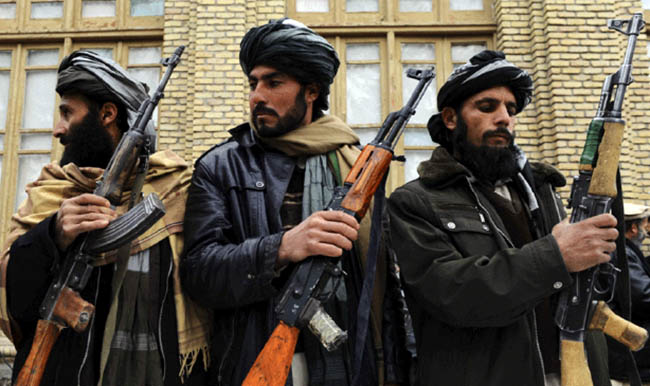The Taliban insurgents continue militancy with the support of al-Qaeda-linked group. About 45,000 opposition fighters are estimated to be involved in Afghanistan’s protracted war and between 20 and 25 percent are foreigners. Following the downfall of their regime, the Taliban ragtag militias were reorganized and resumed their attack in Afghanistan. Within the two past years, the insurgency and civilian casualties have been heightened.
With the unmitigated militancy, the peace negotiation makes hot discussions in the media. A conference about Afghan peace process will, reportedly, be held in Islamabad by Pugwash – which has previously orchestrated constructive negotiation on the Afghan peace drive in France, Qatar and the United Arab Emirates. Afghan and Pakistani figures would participate in the dialogue to facilitate talks with warring factions.
In the meantime, however, Afghan Taliban refused holding talks with the National Unity Government (NUG). In October, three envoys of Taliban’s political office arrived in Pakistan to “discuss arrests of key members” and other issues as it leaked to the media that the Taliban and Afghanistan held secret talks in Qatar. Subsequently, there seems no tendency towards peace.
On the contrary, the Taliban’s splinter group, under the leadership of Mullah Muhammad Rasool, previously declared that they would hold talk if the withdrawal of US forces from the country was guaranteed. “The group is ready to hold an Afghan-led and Afghan-owned talk,” the splinter’s group Mullah Manan Niazi is cited as saying. The group’s readiness for talks was also announced earlier by HIA’s leader Gulbuddin Hekmatyar.
The recent refusal from the Taliban comes as the Ministry of Defense (MoD) said earlier that the elimination of the Taliban fighters would not take more than a month but the regional intelligence were fueling the Afghan war by supporting the anti-government armed militants. Afghan officials say the leadership group of the Taliban and other militant groups including the Haqqani terrorist network are based in Pakistan, where they orchestrate attacks against Afghan government. Addressing a press conference, MoD spokesman Gen. Dawlat Waziri said that Afghan forces confiscated 430 Pakistani weapons including pistols and 23,800 rounds of ammunition in Badghis province. He condemned deadly clash in Kunduz on Thursday that left around 30 civilians dead and claimed that the Taliban continue to use the civilians as human shield and the fighters, including their leaders, are reckless regarding their own family members too.
An effort began in December last year, which resulted in forming the Quadrilateral Coordination Group (QCG), consisted of Afghanistan, Pakistan, China and the US, for bringing peace in Afghanistan, but that was also proved abortive following the death of Mullah Akhtar Mansour. The incident resulted in mistrust among members of the QCG and reduced their hopes for seeking talks genuinely.
In resuming talks, the Taliban are believed to insist on their previous preconditions. Taliban declared their preconditions in Doha on January 23, which include complete withdrawal of the foreign forces from Afghanistan, official recognition of Taliban’s political office in Qatar, removal of Taliban from United Nations terrorist blacklist, halt to the arrest and elimination of Taliban and release of the Taliban inmates from prisons. It is also said that Taliban have asked for establishing interim government. Will Afghanistan accept the preconditions, which has no legal basis?
To bring the Taliban to peace table, Kabul and Islamabad need to bridge the gap and gain each other’s trust. Pakistani authorities constantly denied harboring the Taliban and persisted on resuming the “reconciliation process”. Moreover, the Pakistan army Chief Gen. Raheel Sharif offered, last month, Afghanistan stout support for combating the menace of terrorism, saying peace in the neighboring country is vital to regional stability. He added that the route to a peaceful and prosperous region ran through a stable Afghanistan, “which is achievable through a coordinated approach”.
It is an unmistakable fact that the “war on terror” did not give the desired result in Afghanistan and the insurgency has mounted recently despite years of counterterrorism campaigns. The US did not only spend millions of dollars but a large number of their soldiers lost their lives to eradicate violence and terror from the country. In another item, wars have been fought and took heavy tolls of Afghan soldiers and international troops, wrecked havoc on the country’s financial resources, forced great number of people out of country, razed schools to the ground, curtailed the freedom of the public and violated their rights and dignity, however, insurgency remains a serious challenge.
In September 2014, Afghanistan signed a bilateral security agreement with the US that allows 10,000 US troops to remain in the country. The agreement is open-ended, stating that the troops may remain “until the end of 2024 and beyond”, and that it can be terminated by either side with two years’ notice. BSA was one of the highly controversial issues which put the nation and state in collision course as the public insisted on signing the contract and hoped for peace and security. However, Afghans dream did not come true for a peaceful country after the security agreement. Now, the peace talks draw mixed feelings from the public and there are no real interest and hope for it.
Home » Opinion » No Hope for Bombastic Talks
No Hope for Bombastic Talks
| Hujjatullah Zia

